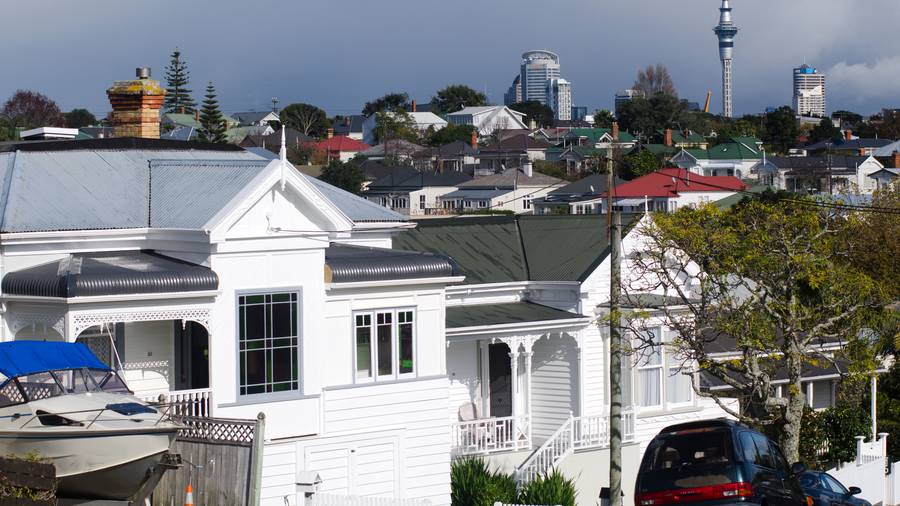Top Stories
Property Investors Federation Defends Market Amid Changing Trends

The debate surrounding property investment in New Zealand continues as experts weigh in on shifting market dynamics. While Jeremy Williamson, the head of private wealth and markets at Craigs Investment Partners, recently suggested that New Zealanders are increasingly moving away from property investments, Matt Ball from the Property Investors Federation offered a different perspective.
In a recent statement, Williamson noted that there seems to be a growing trend among Kiwis to diversify their investments beyond the property sector. He pointed to various factors contributing to this shift, including changing economic conditions and evolving investor preferences. However, Ball contends that despite these changes, the enduring appeal of property investment remains strong in New Zealand.
Enduring Appeal of Property Investment
Ball acknowledged that the property market is indeed evolving, influenced by recent government initiatives aimed at regulating the sector. He highlighted that investors are becoming more informed and are exploring alternative investment opportunities. Nonetheless, he firmly believes that New Zealanders’ affinity for property investment is far from over.
“I think the property market has changed, thanks to some initiatives from the Government, and I think people will start to take a bit of a different approach,” Ball stated. He emphasized that property investment continues to be a valuable avenue for wealth creation and economic stability. “I don’t buy this whole notion that property investment isn’t a productive activity,” he added, reinforcing his stance on the importance of real estate in the investment landscape.
Market Changes and Investor Sentiment
The discussions surrounding property investment have intensified as New Zealand grapples with various economic challenges. Rising interest rates, fluctuating property prices, and regulatory changes have all contributed to a complex environment for investors. As a result, many are reassessing their strategies and considering diverse investment options.
Despite these challenges, Ball remains optimistic about the future of property investment in New Zealand. He points out that real estate can still provide solid returns, especially for long-term investors. “The fundamentals of property investment haven’t changed,” he asserted, indicating that the sector still holds significant potential for those willing to adapt to the new market realities.
As the landscape of property investment evolves, both experts and investors will need to stay informed and agile. The ongoing dialogue between proponents of traditional property investment and those advocating for diversified portfolios underscores the dynamic nature of the financial landscape in New Zealand. As the situation develops, it will be crucial to monitor how these trends shape the broader investment climate in the country.
-

 Sports2 months ago
Sports2 months agoNetball New Zealand Stands Down Dame Noeline Taurua for Series
-

 Entertainment2 months ago
Entertainment2 months agoTributes Pour In for Lachlan Rofe, Reality Star, Dead at 47
-

 Entertainment3 weeks ago
Entertainment3 weeks agoNew ‘Maverick’ Chaser Joins Beat the Chasers Season Finale
-

 Sports2 months ago
Sports2 months agoSilver Ferns Legend Laura Langman Criticizes Team’s Attitude
-

 Sports2 days ago
Sports2 days agoEli Katoa Rushed to Hospital After Sideline Incident During Match
-

 Politics1 month ago
Politics1 month agoNetball NZ Calls for Respect Amid Dame Taurua’s Standoff
-

 Entertainment2 months ago
Entertainment2 months agoKhloe Kardashian Embraces Innovative Stem Cell Therapy in Mexico
-

 World3 months ago
World3 months agoPolice Arrest Multiple Individuals During Funeral for Zain Taikato-Fox
-

 Sports3 months ago
Sports3 months agoGaël Monfils Set to Defend ASB Classic Title in January 2026
-

 Entertainment1 month ago
Entertainment1 month agoTyson Fury’s Daughter Venezuela Gets Engaged at Birthday Bash
-

 Sports1 month ago
Sports1 month agoHeather McMahan Steps Down as Ryder Cup Host After Controversy
-

 World2 weeks ago
World2 weeks agoSevere Winds Hit New Zealand, Over 100 Flights Canceled




















